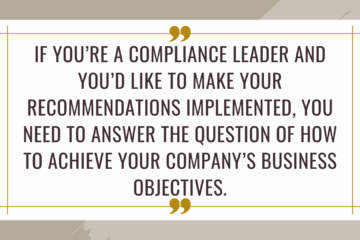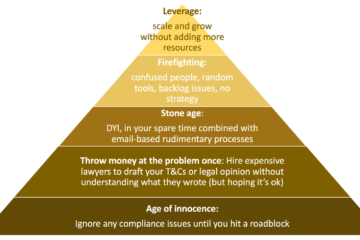Where Big 4 Are Helpful and Where They Aren’t
Several startups recently complained to me how frustrated they are with Big 4 advisors and large law firms.

- brainstorming and conceptualizing or “we see this opportunity and market gap, how to we close it and what can we sell and to whom”;
- building beta or “we know what we want to sell and we even have a few customers or prototype, now we need to build the team, product, market, raise more funds”
- validating – scaling, applying for licenses, entering into high profile partnerships.
- How do you actually onboard your customers
- What questions you will ask them
- What will be the average transaction size,
- How will you manage fraud
- Who will have access to which set of data
- How many legal entities do you need
- Which positions can be combined by one person…
3 phases of startups compliance journey and how Big4 fits in there: https://competitivecompliance.co/where-big-4-are-…where-they-arent/


